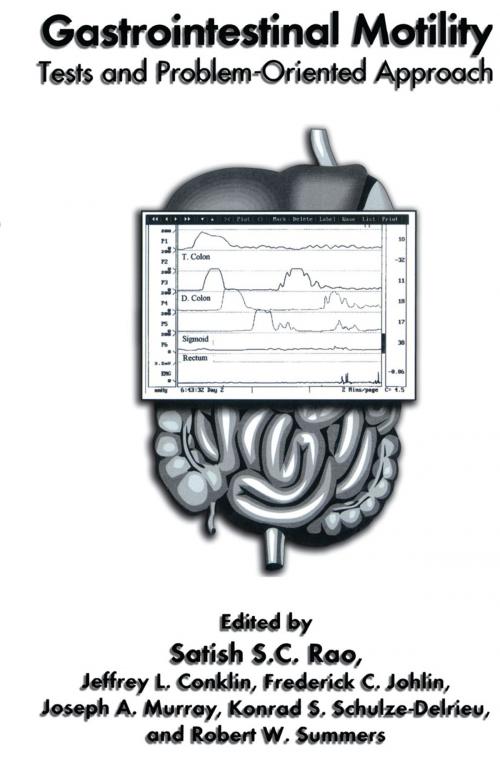Gastrointestinal Motility
Tests and Problem-Oriented Approach
Nonfiction, Health & Well Being, Medical, Specialties, Internal Medicine, Gastroenterology, General| Author: | Robert W. Summers, Jeffrey L. Conklin, Frederick C. Johlin, Joseph A. Murray, Konrad S. Schulze | ISBN: | 9781461548034 |
| Publisher: | Springer US | Publication: | December 6, 2012 |
| Imprint: | Springer | Language: | English |
| Author: | Robert W. Summers, Jeffrey L. Conklin, Frederick C. Johlin, Joseph A. Murray, Konrad S. Schulze |
| ISBN: | 9781461548034 |
| Publisher: | Springer US |
| Publication: | December 6, 2012 |
| Imprint: | Springer |
| Language: | English |
Gastrointestinal motility has evolved from an esoteric laboratory tool into a sophisti cated diagnostic technique that is now widely used clinically to guide in management of complex gastrointestinal problems. Today, it is the most rapidly growing subspecialty within gastroenterology. Previously, many of the gastrointestinal motility problems were either ignored or attributed to a disturbance of "psyche." But with the growing knowledge and understanding of how a dysfunction of the gastrointestinal muscle and nerves can cause disease, we are at the threshold of a revolution in our approach to the diagnosis and treatment of gastrointestinal motility disorders. The purpose of this book is to serve as a useful, up-to-date reference manual and guide for the diagnostic and therapeutic approach towards common adult and pediatric gastrointestinal motility problems. In order to enhance the understanding of these disor ders, a problem-oriented approach has been chosen, and wherever possible the authors have provided clinical case scenarios to illustrate their message. The emphasis has been on how to diagnose and treat motility disorders rather than to provide an encyclopedic infor mation. The reference list at the end of each chapter should enable the enthusiast to seek further information. Some of the material presented in this book has been derived from the proceedings of the annual University ofIowa College of Medicine GI Motility Symposia.
Gastrointestinal motility has evolved from an esoteric laboratory tool into a sophisti cated diagnostic technique that is now widely used clinically to guide in management of complex gastrointestinal problems. Today, it is the most rapidly growing subspecialty within gastroenterology. Previously, many of the gastrointestinal motility problems were either ignored or attributed to a disturbance of "psyche." But with the growing knowledge and understanding of how a dysfunction of the gastrointestinal muscle and nerves can cause disease, we are at the threshold of a revolution in our approach to the diagnosis and treatment of gastrointestinal motility disorders. The purpose of this book is to serve as a useful, up-to-date reference manual and guide for the diagnostic and therapeutic approach towards common adult and pediatric gastrointestinal motility problems. In order to enhance the understanding of these disor ders, a problem-oriented approach has been chosen, and wherever possible the authors have provided clinical case scenarios to illustrate their message. The emphasis has been on how to diagnose and treat motility disorders rather than to provide an encyclopedic infor mation. The reference list at the end of each chapter should enable the enthusiast to seek further information. Some of the material presented in this book has been derived from the proceedings of the annual University ofIowa College of Medicine GI Motility Symposia.















